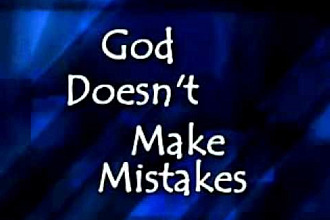“The Lord your God will cut off before you the nations you are about to invade and dispossess.
But when you have driven them out and settled in their land, and after they have been destroyed before you, be careful not to be ensnared by inquiring about their gods, saying, ‘How do these nations serve their gods? We will do the same.’ You must not worship the Lord your God in their way, because in worshiping their gods, they do all kinds of detestable things the Lord hates. They even burn their sons and daughters in the fire as sacrifices to their gods.” Deuteronomy 12:29-32
Many people condemn and label certain practices and things as pagan, worldly, or sinful based on mere association with nonbelievers/outsiders or the fact that nonbelievers use or have used it rather than by what God actually says about the item or practice itself. That is not the Biblical way to define righteousness or sin, but many seem to think it is. God did not say do not worship the Lord in the way of nonbelievers simply because nonbelievers did it that way, God said you shall not worship in that way “because in worshiping their gods, they do all kinds of detestable things the Lord hates.” Something is not right or wrong based on who or what it is associated with but by what God actually says about it.
Knowing this is very important, because when one fails to understand this it can easily lead to fanaticism. Even an apple can be used wrong if you throw it at people, but God still made apples and hitting someone with one does not make apples sinful or “worldly” just because you used it in a sinful way. The list of supposed “sins” can get really long based on the false reasoning that defines something as sinful simply by associations rather than by studying the scriptures to learn what is right and wrong. Although, many people who use this reasoning may think that they are following the Torah they are actually getting father away from it. What they don’t seem to notice is that when you base right and wrong on associations you are more likely to reject truth than protect it and cling to evil than avoid it.
Just because someone or something may not be associated with your religious and cultural affiliation doesn’t mean everything associated with them is wrong and just because someone may be affiliated with our religious beliefs doesn’t mean they are right. We have many good examples of outsiders doing the right thing, like the righteous Gentile Ruth who helped her mother-in-law, the widow from Zarephath that fed Elijah, the harlot Rahab that hid Israel’s spies and Uriah the Hittite who faithfully served David and refused to go home when David suggested it. We also have bad examples from the lives of those who are associated with and should be God’s people but did bad things, such as Saul rebelling against God, David resorting to murder to steal the wife of his loyal servant Uriah and so on.
God says “…I have seen folly in the prophets of Samaria: they prophesied by Baal and caused My people Israel to err. Also I have seen a horrible thing in the prophets of Jerusalem: they commit adultery and walk in lies; they also strengthen the hands of evildoers, so that no one turns back from his wickedness. All of them are like Sodom to Me, and her inhabitants like Gomorrah.” Jeremiah 23:13-14 Let’s not become narrow minded and blinded by our prejudice that we assume we don’t ever need to do a honest evaluation of beliefs or practices and condemn or accept things based on associations rather than by studying what God says.


























